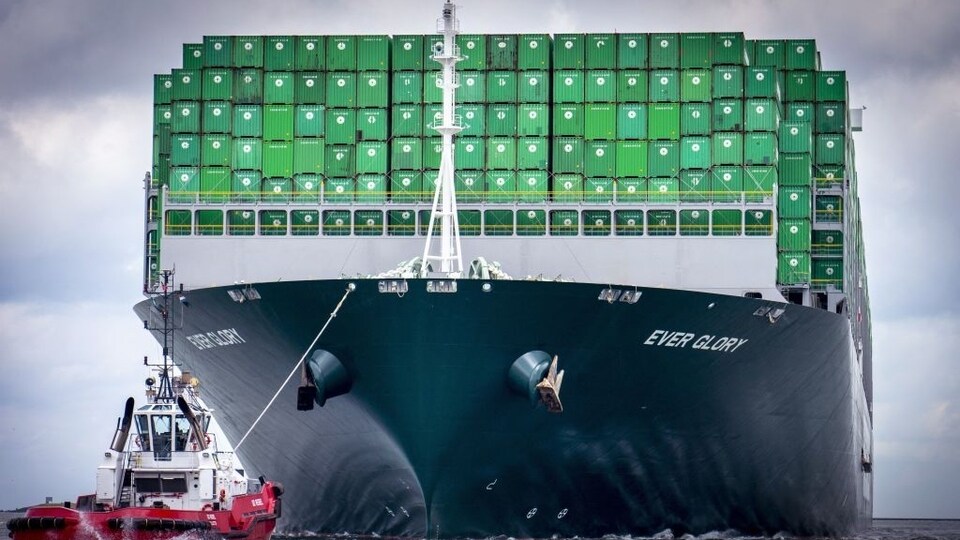How AI will remake the rules of international trade
The US is likely to remain a leader in AI innovation, but it may need to rely on other nations to create and sell AI products.

When it comes to international trade and investment, AI will create some obvious winners and losers. It's the second-order effects that may prove more interesting.
To understand those, start with two premises: First, AI services will consume a lot of energy, not all of which will be green. Second, many nations will regulate either the use of AI, or the implementation of AI-derived goods and services, for instance the creation of new pharmaceuticals or new educational techniques.
Let's consider each of these factors in turn.
Posting a query to ChatGPT consumes a lot of energy, by one estimate 10 times more than a Google search. Currently large language models are sufficiently limited that this is not a major factor in aggregate energy consumption. But as use of AI services increases, the energy burden will rise. Countries with expensive energy, or which will not allow energy consumption to rise much for climate or regulatory reasons, will look to import their AI services from energy-rich countries.
In the future, energy-rich regions may include Spain and Morocco with solar power, South Korea with affordable nuclear power, and whichever nations are pioneers in nuclear fusion. Those nations may end up as major exporters of AI-generated data. They might draw their AI inputs from the US, but specialize in cheap calculation and information transmission. And some regions of America may join this list as well, especially if they are well-suited for solar and hydroelectric power.
To be clear, the US will export a lot of AI services, through such companies as OpenAI, Google, Meta and Anthropic. But the US is not as good at building affordable infrastructure, and that will put it at a disadvantage in the AI revolution and distribute many of the gains abroad.
It remains to be seen whether there are higher profits in selling the original source code or the more derivative electricity-driven, infrastructure-based AI calculations. Nonetheless, this is a potential economic and national security risk for the US. It could end up with a strong lead in the source product, but fall badly behind in making (“manufacturing,” you could say) the final AI outputs.
The way to ease this potential problem is to make the permitting and construction of power generation easier and cheaper. Any US state that does this — and perhaps some will — could become a true economic powerhouse. Many US institutions probably would prefer to buy their AI calculations domestically rather than from a foreign power, if only for data-security reasons.
When it comes to shaping international trade, a second major factor springs from domestic regulations on the potential products of AI services. Consider this scenario: AI services suggest a large number of plausible pharmaceuticals to treat some condition. Yet the US has fairly stringent restrictions on the approval of such pharmaceuticals.
So a trade opportunity will arise, with some countries specializing in testing the products of AI services. It is already the case that many large pharmaceutical companies run drug trials in Africa, where costs are lower and regulations looser. The scope for such regulatory arbitrage will expand considerably, and the net result will be that nations willing to take regulatory chances will attract more foreign investment.
Or how about this related scenario: Advanced AI suggests that some educational techniques are superior. Many nations may be too bureaucratic to take advantage of such options quickly. It is not difficult to imagine some smaller nations, especially those governed with fewer checks and balances, moving more quickly to implement the changes. What if Singapore adopts the new educational innovations before they spread to Western Europe or California?
It's not only that Singaporean education will improve. It's that Singapore, from those innovations, may develop products for export, such as effective online education. Nations that develop or tolerate AI-generated innovations also will become more important exporters.
Can you imagine a future in which the US remains a leader in AI innovation, but for many of the actual products (and energy sources) the world relies on Singapore or Uruguay? What if those nations find it easier to install nuclear fusion, or to experiment with the social and economic innovations derived from AI? Over time, those countries could become more important allies.
More generally, many larger nations might look to smaller partners that have more institutional flexibility as part of a new series of AI-derived economic and perhaps also military alliances. Who ends up more dependent on whom?
In any case, as with many other AI-influenced human endeavors, international trade will never be the same again.
Elsewhere in Bloomberg Opinion:
- Globalization's Demise Has Been Greatly Exaggerated: Daniel Moss
- A Bigger Threat to US Trade Than Chinese Chips: Tim Culpan
- Your Future AI Will Have Multiple Personalities: Parmy Olson
Want more Bloomberg Opinion? Subscribe to our newsletter.
This column does not necessarily reflect the opinion of the editorial board or Bloomberg LP and its owners.
Tyler Cowen is a Bloomberg Opinion columnist, a professor of economics at George Mason University and host of the Marginal Revolution blog.
Catch all the Latest Tech News, Mobile News, Laptop News, Gaming news, Wearables News , How To News, also keep up with us on Whatsapp channel,Twitter, Facebook, Google News, and Instagram. For our latest videos, subscribe to our YouTube channel.





































